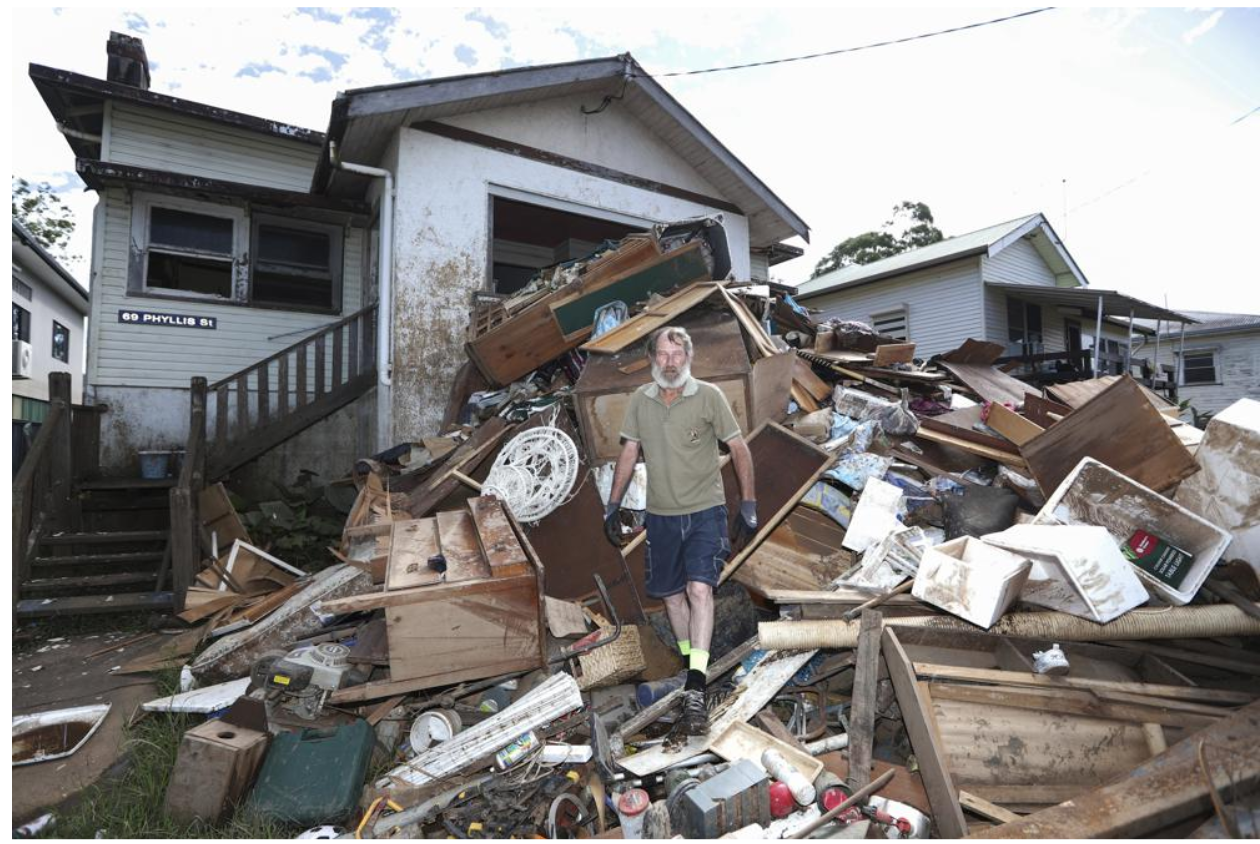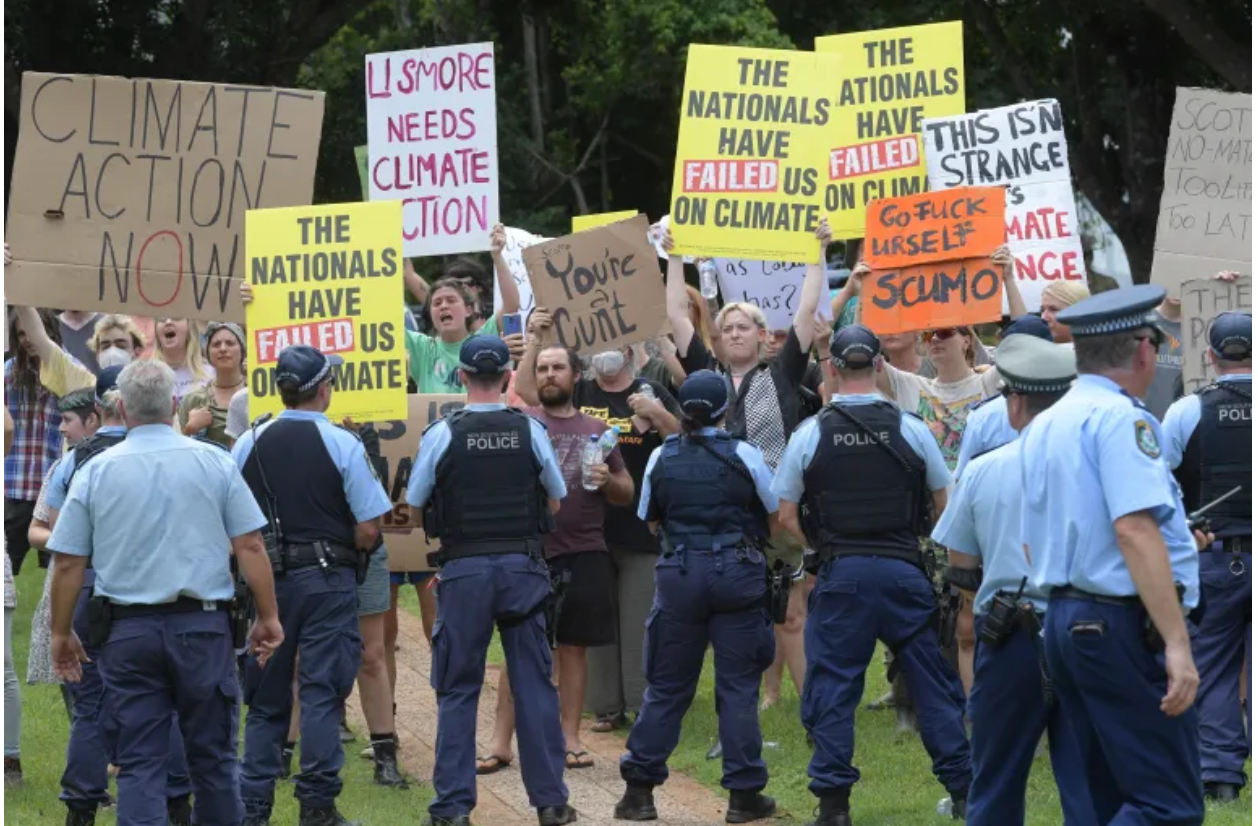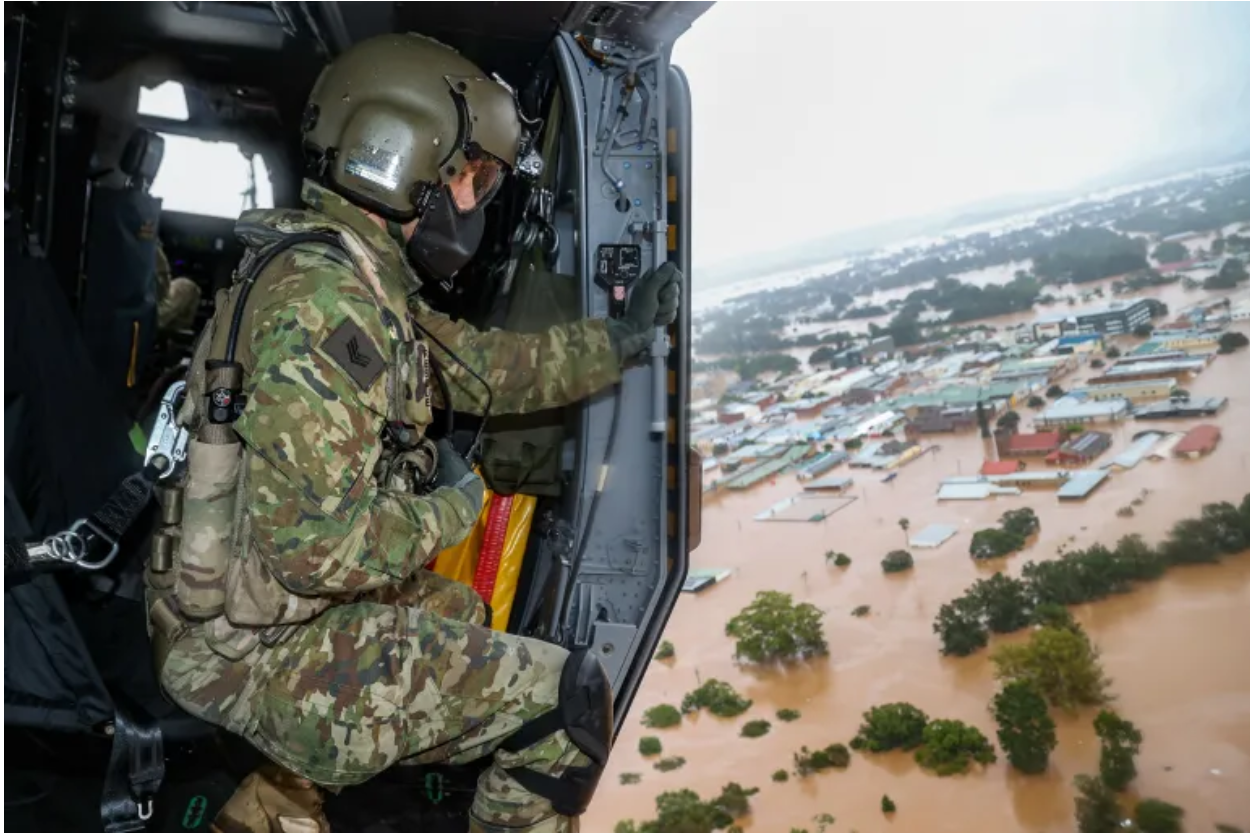Australia Declares East Coast Flooding A National Emergency
Lismore resident Ken Bridge stands on a pile of his flood-damaged furniture. Photo: Jason O'Brien/AAP Image via AP
Australia’s Prime Minister Scott Morrison declared the country's east coast flooding a national emergency this Wednesday. The announcement should significantly increase the speed and accessibility of aid available to victims of the crisis, which displaced 40,000 people and killed 22 thus far.
The floods started about two weeks ago after extremely heavy rain on the country’s east coast. The major cities of Brisbane and Sydney have each received well over 75% of what should have been their annual rainfall over the past few weeks. Several of the affected locales, Sydney included, have faced some of the worst rain and flooding ever recorded. Roads are blocked by debris, and Sydney Trains has told commuters to avoid non-essential travel due to significant disruption and delays.
According to Morrison, declaring a national emergency will help “cut through any red tape we might face in delivering services and support” – in technical terms, it means that flood victims will not need to provide identification documents to receive financial aid and that the federal government can act independently of state governments.
The state of emergency is Australia’s first since its wildfires two years ago, and was declared during Morrison’s visit to Lismore, New South Wales. The flooding has affected Australia’s east coast, and has hit the New South Wales and Queensland regions particularly hard. Residents argue that Morrison should have acted faster, as some victims were forced to fund helicopter evacuations for themselves. Morrison has dismissed their criticism as “unrealistic.”
Climate protesters during Morrison’s Lismore press conference. Photo: Dave Hunt/EPA-EFE
“Always there will be a community response in disasters such as this, because the community is already there,” Morrison told reporters. “The resources move and they come as you see them now, but they are not available on a moment’s notice.”
The resources include an additional two weeks of disaster recovery payment for local areas, $41.2 million for mental health support services in the Northern Rivers region, and $25m for emergency relief, food relief and financial counseling services in the Northern Rivers region. The amount of military personnel aiding in clean-up has also been doubled. Still, residents argue that Morrison’s response has not been fast or great enough.
Australian military personnel deployed to help with clean-up operations. Photo: Australian Defense Force via AFP
Morrison also received criticism for his lack of aggressive action against climate change, which is contributing to worsening weather events in the country. Multiple protests were held during Morrison’s visit to New South Wales, where protestors chanted “the water is rising, no more compromising” in an attempt to garner media attention.
Though Morrison publicly agreed that climate change was likely a factor in the recent floods, he suggested that other countries’ emissions were a greater concern given Australia’s commitment to achieving net-zero greenhouse gas emissions by 2050.



